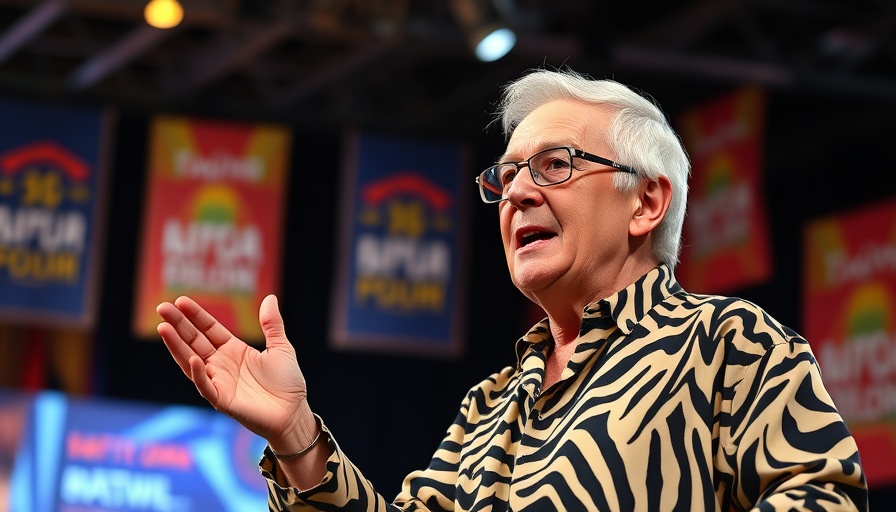
A Call to Action: Facing National and Geopolitical Challenges
In a poignant address delivered at the Akasia Community Hall in Pretoria, Dr. Naledi Pandor, a veteran of the African National Congress (ANC), voiced a stark warning about the testing times South Africa faces on both national and geopolitical fronts. As we approach significant electoral events, such as the 2024 general elections and the 2026 municipal elections, the landscape of political realignment is changing rapidly.
Understanding the Current Landscape: The Role of Political Parties
Pandor’s remarks come at a critical juncture as South Africa’s political dynamics evolve amidst a backdrop of coalition government discussions. With the Democratic Alliance (DA) and the Economic Freedom Fighters (EFF) challenging the status quo, the potential shift of power may hinge on the ANC's ability to reorganize and rejuvenate its policies to meet public demands for accountability and effective service delivery.
The emerging scenario could see an increased voter turnout fueled by discontent with established leadership, notably under President Cyril Ramaphosa, whose administration has faced scrutiny over issues like state capture and public service reform.
Geopolitical Strains: The Bigger Picture
Pandor emphasized the importance of recognizing the geopolitical environment as a critical factor influencing South Africa's future. With a perceived decline in American hegemonic power, a fracturing Europe, and an introspective China, South Africa's role as a regional leader in the Southern African Development Community (SADC) is more vital than ever. Looking forward, this may necessitate a recalibration of foreign policy strategies to better align with BRICS and G20 partnerships, while boosting international trade agreements to advance economic recovery.
The Call for Strong Leadership
Reflecting on the legacy of Gertrude Shope, Pandor called for a new generation of leaders embodying strength and resilience. The turbulent times they navigated parallel today’s struggles with rising crime rates, gender-based violence, and economic instability. Addressing these issues as national priorities will be essential for fostering racial reconciliation and addressing income inequality in the long term.
Exploring Solutions: A Unified Approach
The path ahead is fraught with challenges, but the potential for innovation and unification exists within grassroots movements and civil society engagements. Developing comprehensive strategies through public sector partnerships will play a pivotal role in addressing youth unemployment, optimizing land reform policies, and ensuring the successful implementation of initiatives like the National Health Insurance (NHI).
The urgency to foster collaboration among political parties and civil society is now more pronounced. It is time for South Africans to actively engage in political discourse and advocate for electoral reforms that enhance participation and ensure transparency in governance.
A Pivotal Moment for South Africa
As South Africa stands at a crossroads, it is essential for citizens, policymakers, and leaders, like Pandor, to recognize the power of collective action. The nation's future hinges not only on addressing internal socio-political dynamics but also on how it positions itself within the global landscape. As we prepare for the upcoming elections, let us all commit to being informed and engaged citizens who demand accountability and proactive governance.
In this climate of uncertainty, your voice matters. To ensure that your concerns are heard, participate in dialogues, community forums, and advocacy events. Together, we can shape a brighter future for all South Africans.
 Add Row
Add Row  Add
Add 




Write A Comment